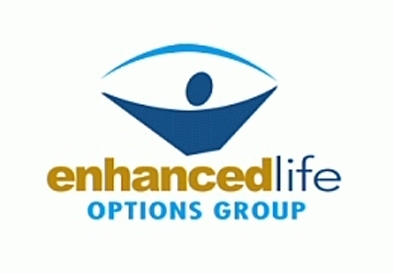Assistive Technology
Produced in New Hampshire
LEARN MORE ABOUT ASSISTIVE TECHNOLOGY AT THE IOD
ATinNH YouTube Channel
Many, many short how-to videos on a multitude of subjects. Learn how to create an iPad stand or easy tips for simple wheelchair maintenance.Granite State Independent Living
Promotes life with independence for people with disabilities and those experiencing the natural process of aging through advocacy, information, education and support.Northeast Passage
Northeast Passage delivers disability-related health promotion and adapted sports programs throughout New England. Northeast Passage is a program of the University of New Hampshire’s College of Health and Human Services and is an affiliate of Disabled Sports USA.
General AT Product Information
Adaptive Environments
The Institute for Human Centered Design (IHCD), founded in Boston in 1978 as Adaptive Environments, is an international non-governmental educational organization (NGO) committed to advancing the role of design in expanding opportunity and enhancing experience for people of all ages and abilities through excellence in design. IHCD’s work balances expertise in legally required accessibility with promotion of best practices in human-centered or universal design.ATAP - Association of Assistive Technology
A place to find your statewide program information.Assistive Technology Industry Association
The mission of ATIA is to serve as the collective voice of the assistive technology industry so that the best products and services are delivered to people with disabilities.CATEA - National Public Website on Assistive Technology
A good resource with over 22,000 products in its library. The site provides access to information on AT devices and services as well as other community resources for people with disabilities and the general public.Center on Technology and Disability (CTD)
The CTD is designed to increase the capacity of families and providers to advocate for, acquire, and implement effective assistive and instructional technology (AT/IT) practices, devices, and services. CTD has established a robust online Open Institute, that provides information resources, personal and professional development (PPD) activities, and universal and targeted technical assistance. The Institute comprises a Library of multi-media, multi-lingual resources; a Café that offers both topical and audience-specific discussions; and a Learning Center that makes available leading experts in the field. The Learning Center provides structured learning modules, short-term and long-term PPD events, and technical assistance tools and strategies.Explore AT
Explore AT (Assistive Technology) is a clearinghouse for many resources relating to specific disabilitiesNational Assistive Technology Act Technical Assistance and Training (AT3) Center
The mission of the Assistive Technology Act Technical Assistance and Training Center (AT3) is to increase access to and acquisition of assistive technologies by individuals with disabilities across the lifespan.National Rehabilitation Information Center (NARIC)
NARIC maintains a research library of more than 65,000 documents and responds to a wide range of information requests, providing facts and referral, database searches, and document delivery. NARIC maintains REHABDATA, a bibliographic database on rehabilitation and disability issues, both in-house and online. Users are served in English and Spanish by telephone, mail, electronic communications, or in person. NARIC also prepares and publishes the annual NIDILRR Program Directory, available in database format from NARIC’s web site, and several regular publications highlighting NIDILRR research.National Center on Accessible Instructional Materials
This site serves as a resource to state- and district-level educators, parents, publishers, conversion houses, accessible media producers, and others interested in learning more about and implementing AIM and NIMAS.Rehabilitation Engineering and Assistive Technology Society of North America (RESNA)
Is a professional society for individuals and organizations interested in technology and disability. RESNA contributes to the public welfare through scientific, literary, professional and educational activities by supporting the development, dissemination, and utilization of knowledge and practice pertaining to rehabilitation and assistive technology so that all citizens can achieve the highest quality of life.ACL
The Administration for Community Living (ACL) advocates across the federal government for older adults, people with disabilities, and families and caregivers; funds services and supports provided primarily by states and networks of community-based programs; and invests in training, education, research, and innovation.
AT in Employment
JAN - Job Accommodation Network
The Job Accommodation Network (JAN) is the leading source of free, expert, and confidential guidance on workplace accommodations and disability employment issues. Working toward practical solutions that benefit both employer and employee, JAN helps people with disabilities enhance their employability, and shows employers how to capitalize on the value and talent that people with disabilities add to the workplace. JAN is supported by the US Department of Labor.Partnership on Employment & Accessible Technology (PEAT)
PEAT is a multi-faceted initiative to foster collaboration and action around accessible technology in the workplace. Guided by a consortium of policy and technology leaders, PEAT works to help employers, IT companies, and others to understand why it pays to build and buy accessible technology, and how to do so.
AT in Inclusive Education
CAST
CAST is a nonprofit research and development organization that works to expand learning opportunities for all individuals, especially those with disabilities, through Universal Design for Learning.PACER Center
The mission of PACER Center (Parent Advocacy Coalition for Educational Rights) is to expand opportunities and enhance the quality of life of children and young adults with disabilities and their families, based on the concept of parents helping parents.

